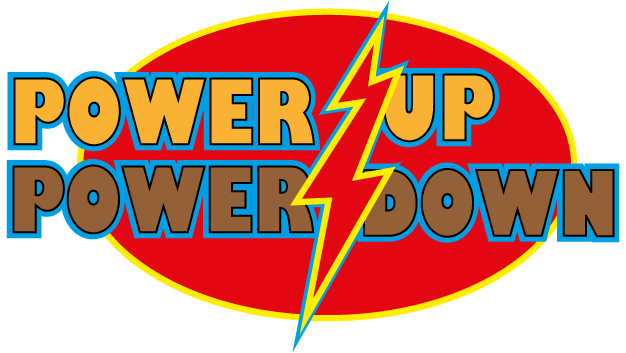
"Not only will atomic power be released, but someday we will harness the rise and fall of the tides and imprison the rays of the sun." — Thomas Edison
Program overview
Program inquiry question:
How can we produce and consume electrical energy more sustainably?
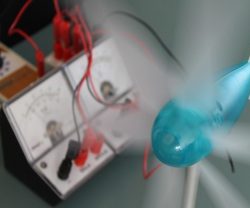 Power up, Power down is a full day excursion which takes place at Brisbane Urban Environmental Education Centre, where students will:
Power up, Power down is a full day excursion which takes place at Brisbane Urban Environmental Education Centre, where students will:
- examine energy forms and transformations.
- extend their knowledge and understanding of electrical circuits.
- Plan and conduct practical experiments designed to investigate aspects of energy efficiency and sustainable energy production.
The days begins with an engaging card matching activity which taps into prior knowledge and introduces or reviews the vocabulary associated with different forms of energy and energy transformation. This allows students to make connections between abstract notions of energy, their definitions and examples of real world. Models are used to illustrate the energy transformations in a range of renewable and non-renewable energy production methods including a steam engine, wind and water turbines and a hydrogen fuel cell. These are then mapped in energy flow diagrams. 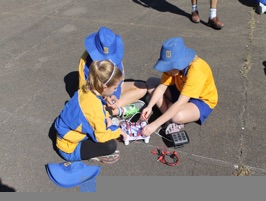
A series of hands on practical activities enables students to construct an electrical circuit (open and closed) which incorporates a solar cell as its energy source before a practical exploration of series and parallel circuits and a discussion about the issues that relate with each.
Later, we review how energy usage is measured using appropriate devices and units before investigating how we can reduce energy use both in school and at home through our actions and the use of energy saving appliances. Students decide on the variables to be changed and measured, accurately record their data and consider the implications of their experimental results.
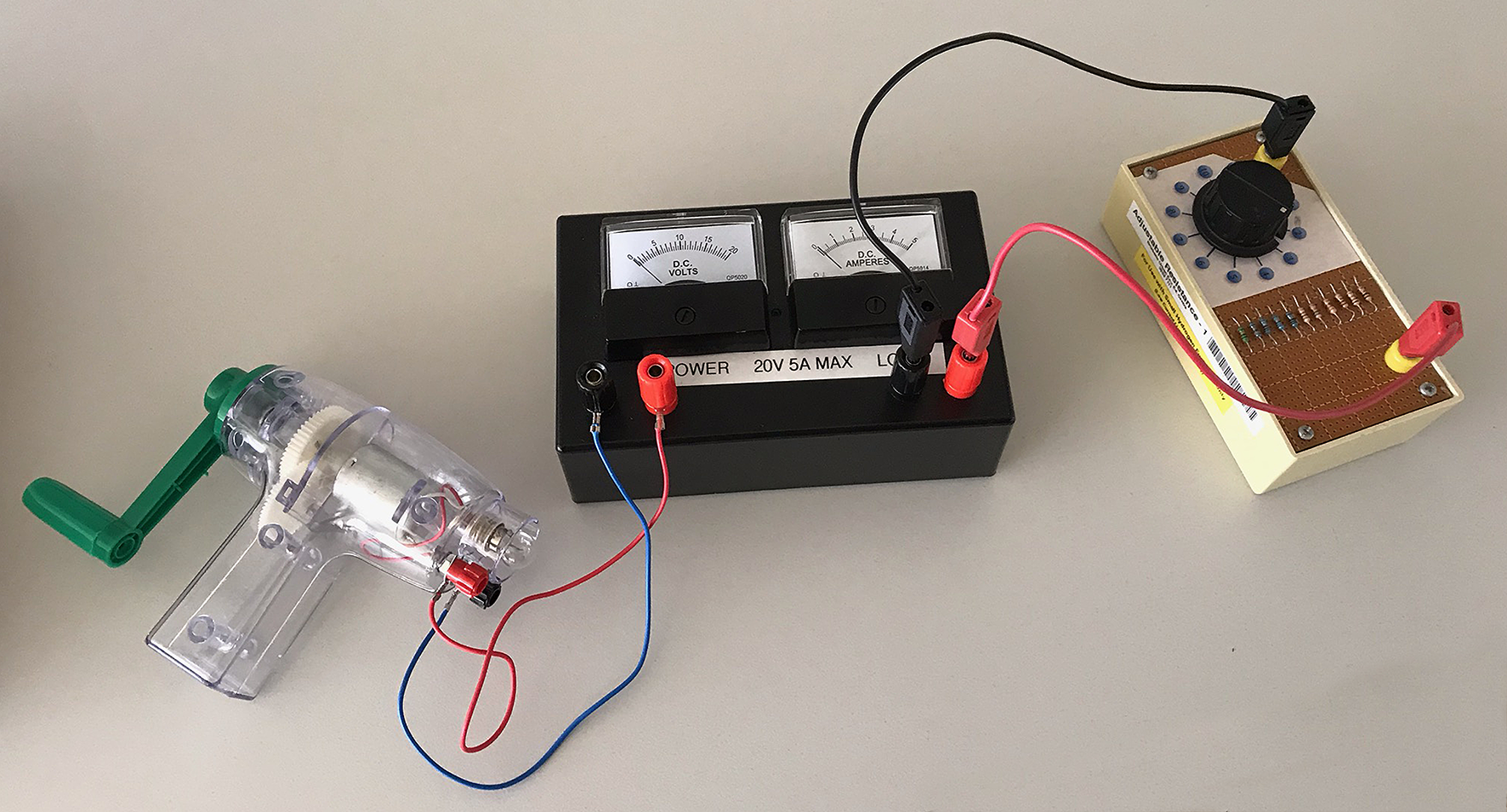 Students later conduct a series of experiments to investigate energy efficiency. They decide variables to be changed and measured in fair tests and observe, measure and record data with accuracy. Finally, students interpret and evaluate their experimental results to determine whether or not their hypothesis is proven.
Students later conduct a series of experiments to investigate energy efficiency. They decide variables to be changed and measured in fair tests and observe, measure and record data with accuracy. Finally, students interpret and evaluate their experimental results to determine whether or not their hypothesis is proven.
At the end of a day filled with thought provoking practical activities, students leave with the scientific knowledge they need to develop energy management initiatives in their own school environment and at home.
Curriculum links
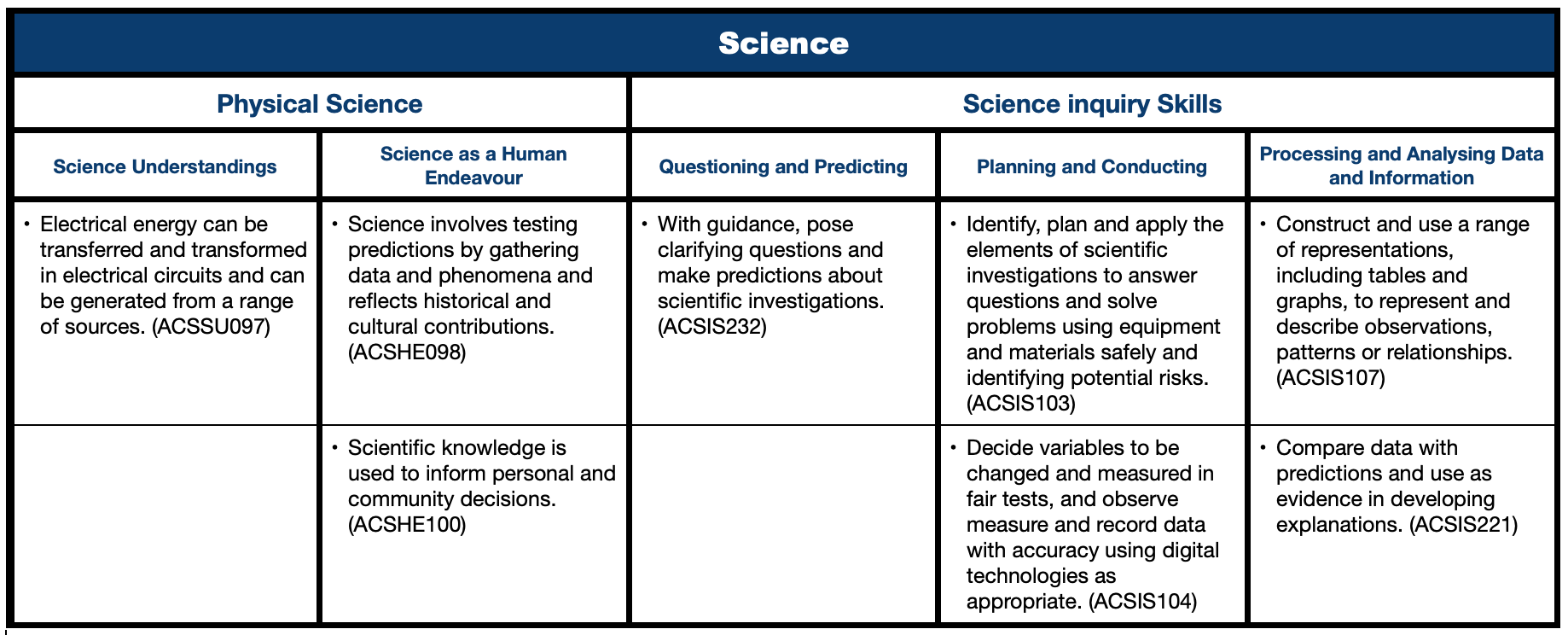
Curriculum Activity Risk Assessment - Year 6 - power up power down
Make a booking!